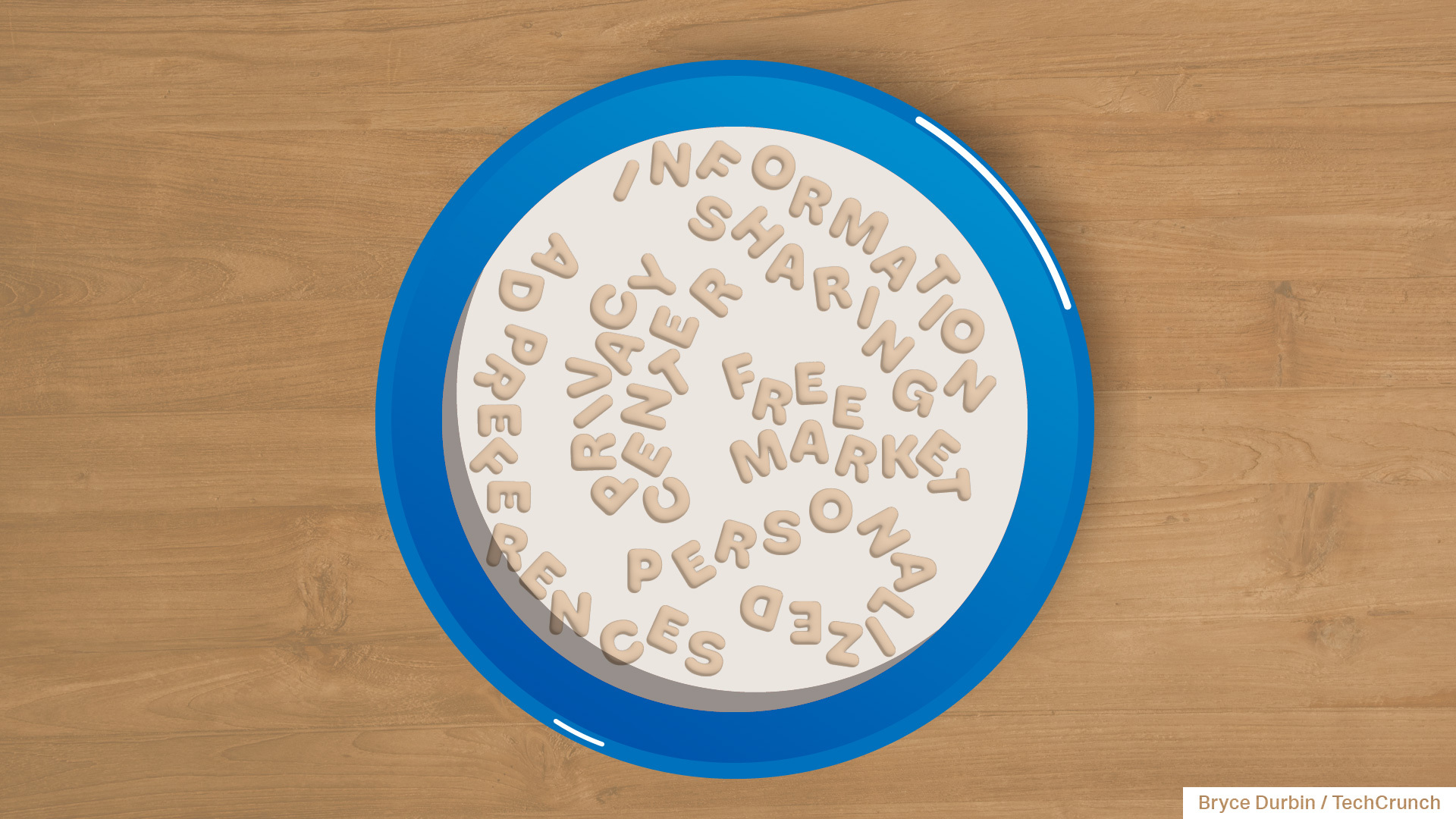Your cut-out-and-keep guide to Big Tech talking points in a new age of antitrust

With tech giants facing new laws and enforcements aimed at cutting their empires down to size, a lobbying frenzy replete with wildly binary claims is underway.
As the likes of Amazon, Apple, Google, Meta, Microsoft and TikTok face unprecedented (yes, actually!) scrutiny from lawmakers and law enforcers around the world, lobbyists are working overtime to put a self-serving spin on entrenched, profit-extracting machinery.
Their job? Apply high-gloss, pro-competition narratives to cloak accusations of naked monopoly. The goal? Seek to bend new rules, such as the EU’s Digital Markets Act, to fit existing operations and business models to avoid as much commercial damage as possible.
It’s all about fending off wrecking-ball enforcement — and new, targeted laws — which could force the world’s most valuable companies to dismantle the chokepoints they’ve built to make money, ingest data and capture attention.
But there’s an even greater nightmare for Big Tech: The breakup of established empires may be on the cards.
Platform PR ops — which you can trace through official blog posts, user-facing messaging, regulatory filings and more — seek to reframe Big Tech’s actions as beneficent and stain-free. As such, their contortions can be highly gymnastic. It’s fair to say commercial juggernauts are long practiced in the dark art of doublespeak, with accusations of unfair behavior dating back decades in some cases.
This may explain why some of the defensive claims put out in response to dialed-up regulatory attention are so familiar. But it’s possible to spot newer concoctions, too — such as talk of muscular new EU market contestability laws demanding “difficult trade-offs.” (Rough translation: “Our compliance will degrade the service in a way that’s intended to annoy you because we want you to complain about the law.”)
Amid all the noise, one thing looks clear: The regulatory risk is finally real.
As the world’s most valuable companies pay flacks to come up with semantic tactics to paint their market power as nothing-to-see-here, good ol’ business-as-usual, we present some plain English translations of commonly seen Big Tech talking points…

Our platform is essential for small businesses to reach consumers.
Gatekeeping is our line of business.
Our interests are aligned with thousands of small and medium-sized businesses.
We’re also in rent collection.
We have built a safe and trusted place for users.
Rent’s due!
We create a magical experience for our users.
Don’t touch our rents.
We believe in the free market.
We’ll do whatever we want until we’re made to stop.
We compete with a wide variety of services.
We crush as much competition as we can, as fast as we can.
We face intense competition.
Sometimes it takes us longer than we’d like to crush the competition.
We believe competition is good for our economy.
Baby, we ARE the economy!
We’re taking a compliance-first approach.
We’re looking out for No.1.
We take your privacy seriously.
We’re using your information.
We take the security of your information seriously.
We want exclusive access to your information.
We are committed to keeping people’s information private and secure.
We want exclusive access to everyone’s information — and, btw, if you use the web, we’re tracking you.
Privacy fundamentalists.
Literally anyone who cares about privacy; typically denotes a European.
We offer unprecedented choice.
You get no choice.
We’re offering a clear choice.
You definitely get no choice.
You can easily switch your default.
Good luck finding the setting!
Manage your consent choices.
We make it really hard/impossible for you to stop us tracking you.
There’s a lack of clear regulatory guidance.
We’ll do whatever we want until we’re made to stop.
We need more clarity about how to comply.
We’ll do whatever we want until we’re made to stop.
We’re complying with the law.
We’re not — but make us stop, punk.
The regulatory landscape is evolving.
We’re breaking the law.
We remain committed to complying with the law.
We broke the law.
It addresses the latest regulatory developments, guidance and judgments.
We’re breaking the law — but make us stop, punk.
New ways to manage your data.
We got caught breaking the law.
Subscription for no ads.
We found a new way to ignore the law.
Opt-out process.
We track you by default.
Help center.
Unhelpful by default.
The new rules involve difficult trade-offs.
Our compliance will degrade the service in a way that’s intended to annoy you because we want you to complain about the law.
We believe in a free, ad-supported internet.
We intend to keep tracking you, profiling you and selling your attention to anyone who pays us.
Personalized advertising.
Surveillance advertising, aka tracking.
Relevant ads.
Tracking.
Personalized products.
Tracking.
Relevant content.
Tracking.
Personalization.
Tracking.
Personal data that is collected about your interaction can be shared across linked services.
Tracking.
An inclusive internet where everyone can access online content and services for free.
Our business model requires privacy to be an unaffordable luxury because you’re the product.
Free services.
In this context just another way of saying we’re tracking you.
A way for people to consent to data processing for personalized advertising.
A mechanism for tracking so fiendishly simplistic to activate that a child already has.
The validity of our approach has been validated by numerous authorities.
We’re breaking the law in a new way so regulators haven’t caught up yet.
Information sharing.
Yep, that’s us, normalizing how we’re taking your private information and doing what we want with it again!
We do not sell your information.
We sell your attention.
Manage how your data is used to inform ads.
There’s no way to stop us abusing your privacy.
Ad preferences.
There’s no way to stop us abusing your privacy.
Privacy center.
Srsly, there’s no way to stop us abusing your privacy and we’re just trolling you now!
Why am I seeing this ad?
Because we tracked you.
Why are we doing this?
To keep tracking you for 🤑
Publicly available information.
Stuff we stole.